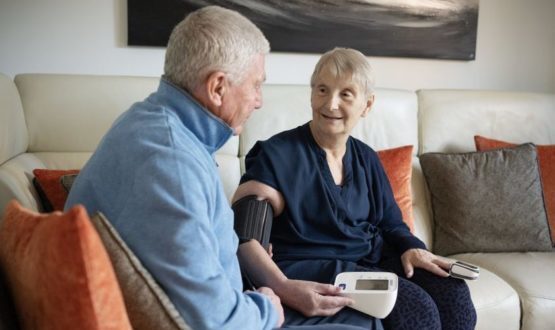Two hospital search engines launched
- 28 December 2007
Two major German health insurance companies have presented new hospital search engines for citizens in order to increase transparency of the German healthcare system.
Both services include quality data on medical interventions. However, their usability does not fulfil basic quality demands.
For two years now, German hospitals have been legally obliged to publish annual quality reports. These reports give information on how many patients with a given condition are being treated in an institution. They also provide data on procedural complications and on disease specific mortality.
The hospital quality reports are published as PDF files with dozens of pages and an enormous amount of detailed charts with long lists of data. They are difficult to handle even for medical professionals, and completely unsuitable for lay people.
In order to get the information of the quality reports to the general public, more and more health insurance companies are developing hospital search engines. They promise to deliver an easy way to identify the best hospital for a given condition in a given region.
Recently two news search engines have come to market: The IKK, a health insurance association with a total of 6m insurants, came up with “KlinikProFi”, a search engine that promises to help patients identify the best hospitals. “We have summarized all relevant data so that it becomes possible to compare the institutions in detail without being a specialist”, says head of IKK Rolf Stuppardt.
Upon visiting the website it becomes apparent that this is an exaggeration: all one is presented with when looking up, for example, “myocardial infarction in Berlin”, is a list of hospitals without any rankings. It only tells the patient the total number of beds for each institution and the total number of patients – both figures are irrelevant if one is looking for the best medical care for a specific condition.
Other information, in particular disease specific mortality, is there, but it can only be found in the original hospital PDF files which, again, are hard to decipher and difficult to understand.
Another health insurance association, VdAK, performs only slightly better. VdAK is a major health insurance provider in Germany with some 22m insurants in total. Its “Klinik-Lotse” (hospital guide) already existed but has been given a revamp.
The Klinik-Lotse now has a slightly more convincing navigation system than its counterpart from IKK, but the data that is easily accessible is exactly the same: total number of beds, and total number of patients. Again, information on parameters that are relevant for clinical outcome are hidden in PDF files, making direct comparison extremely time consuming.
The reason for this unsatisfying situation is a combination of both budget problems and reluctance of hospitals to provide data that can be easily processed. The PDF files provided are what is minimally required in order to fulfil legal demands. Insurance companies, in return, need to offer hospital searches for public relations reasons. However, they are unwilling to invest the money it would take to transform PDF files into a nationwide database and keep it up to date.
“All these search engines tend to be by-products with no or very limited budget”, Dr. Thomas Mansky from Helios hospital chain, told E-Health Europe. Mansky is a pioneer in making hospital quality transparent. Helios runs an own hospital search engine that performs better than its health insurance counterparts in making relevant outcome data transparent. But it only covers Helios-hospitals and this does not help a patient to identify the best hospital in his region either.
Links
http://www.ikk.de (German language only)
http://www.klinik-lotse.de (German language only)
http://www.helios-klinikfuehrer.de (German language only)
Philipp Grätzel




